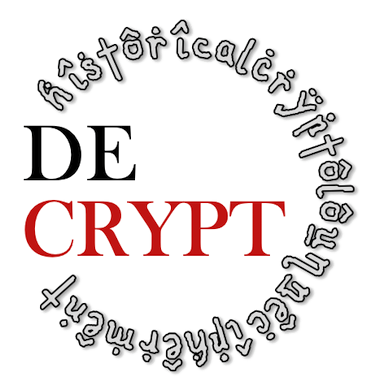Contributors
CODE Research Institute
The Research Institute CODE at the University of the Federal Armed Forces in Munich networks experts for cyber security from research, the military, business, industry, public authorities, and associations. Since end of 2019 the complete CrypTool Portal is hosted there, supervised by Prof. Wacker.
University of Siegen, Germany
The University of Siegen contributed an extensive number of features to the CrypTool project, e.g. by supervising several CrypTool related final exams at different universities. Additionally, the CrypTool project was presented at a big public event at the University of Siegen as a result of its award as Selected Landmark in the Land of Ideas, the biggest German nationwide event series in 2008.
Ruhr-Universität Bochum, Germany
The Ruhr-Universität Bochum provides the CrypTool project with special knowledge about several cryptology-related topics. Moreover, they supervise students who integrate functionality in CrypTool 2 and they administer the MTC3 website.
The DECRYPT Project: Automatic Decryption of Historical Manuscripts
The DECRYPT project builds the DECODE database with more than 3000 encrypted historical documents and keys and it develops computer-aided tools for automatic decoding of historical source material by using AI and cross-disciplinary research involving computational linguistics, cryptology, history, linguistics and philology. One of the tools used is CrypTool 2 which is integrated in a web-based workflow ranging from upload, transcription, linguistic and historical analysis, cryptanalysis, and feedback loops. The project is financed by the Swedish Research Council, grant 2018-06074 (2018-2024).
Universität Kassel
The department "Applied Information Security (Angewandte Informationssicherheit)", headed by Prof. Dr. Wacker, hosted the whole CrypTool website for several years. He also was the lead of the CrypTool 2 project.
University of Duisburg-Essen, Germany
The University of Duisburg-Essen has been in the CrypTool project since 2007 and entered into several commitments. Moreover, the core architecture team of the initial CrypTool 2.0 was based there.
Deutsche Bank AG
CrypTool has been initially developed for the purpose of security awareness trainings within Deutsche Bank. After the initial requirements were met, Deutsche Bank handed CrypTool over to the opensource community. From the very beginning, Prof. Bernhard Esslinger was the main coordinator of the CrypTool project.
Technische Universität Darmstadt, Germany
The Technische Universität Darmstadt hosted the former CrypTool website and the former CrypTool 1 source code repository. Now, they are mainly involved in the new JCrypTool project and assist in number theoretical issues.
Center of Advanced Security Research Darmstadt (CASED)
Prof. Johannes Buchmann's research group "Cryptography and Computeralgebra" at TU Darmstadt develops the FlexiProvider library, an open-source Java library with cryptographic primitives and protocols. Further developments of the provider are accomplished in the context of the CASED research center and were integrated into BoucyCastle. Both, FlexiProvider and BouncyCastle, are used in JCrypTool.
Politechnika Warszawska, Poland
The Warsaw University of Technoloy translated the CrypTool 1 e-learning software to Polish.
Consejo Superior de Investigaciones Científicas, Spain
The "Spanish National Research Council" in Madrid ported the CrypTool 1 e-learning software to Spanish.
FH Oberösterreich, Campus Hagenberg
The Department "Secure Information Systems" at the University of Applied Sciences Upper Austria, Campus Hagenberg has been contributing to the JCrypTool project since 2007 by implementing many procedures, protocols, and visualizations.
Klagenfurt University, Austria
The research group for system security contributes to quality assurance, as part of the beta testing team. They also provide ideas and feedback with respect to the further development of CrypTool in the academic area.
University of Singidunum, Serbia
The Department for Informatics and Computing at Singidunum University has contributed plugins for network based communication between remote CrypTool 2 environments. These plugins are the result of many years of successful usage of CrypTool for teaching cryptology.
The list above is not complete, as many people and organizations contribute to the CrypTool project without extra credits on this website.


















